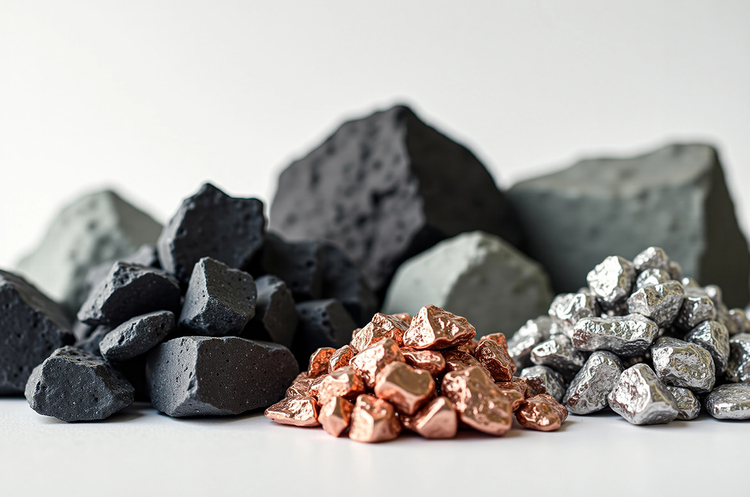Handbook for Trump: what to consider when entering the Ukrainian rare earth metals market
What risks do American companies face when investing in the extraction of these minerals

U.S. President Donald Trump has set a condition for continuing American support for Kyiv in the war against Russia – access to Ukraine’s rare earth metal deposits. "We want to make a deal with Ukraine in which they secure what we provide them with their rare earth and other materials," Trump said.
He clarified that he had received a message from the Ukrainian government expressing readiness to sign such agreements. "They have large reserves of rare earth elements, which are critically important for the modern high-tech economy. We are investing hundreds of billions of dollars. I want security in rare earth elements, and they are ready to provide it," the U.S. president stated during a briefing at the White House.
Judging by the emphasis Donald Trump placed, he sees strategic benefits in a potential deal with Ukraine – ones that could provide the U.S. with not only financial gains but also advantages in its geopolitical confrontation with China. After all, rare earth metals are an essential component in the production of military equipment, chips, and battery storage, as well as smartphones, computers, wind turbines, electric vehicles, and solar panels.
Beijing has managed to gain control over the extraction and processing of these strategically important elements in most countries around the world. This allows the Chinese communist dictatorship to "hold hostage" not only the U.S. but also the EU, restricting their path to technological progress.
Where did Trump get that idea?
The "Ukraine Victory Plan," presented last year by Volodymyr Zelenskyy, includes special agreements with strategic partners on the joint protection and extraction of natural resources, whose total value is estimated at "trillions of U.S. dollars."
This list includes uranium, titanium, lithium, graphite, and other valuable minerals that "provide advantages in global competition." Judging by Trump's latest statements, he has decided to act on this very idea put forward by the Ukrainian president.

However, as Volodymyr Boiko, founder of the Nadra.Info news agency, explained, a number of valuable mining sites are now located in frontline areas, in territories temporarily occupied by Russia (TOT), or in close proximity to the border with Belarus, which supports Putin’s regime.
This includes, for example:
- Azovske deposit of zirconium-rare earth ores,
- Mazurivske deposit of zirconium-niobium-tantalum ores,
- Anadol ore field of rare earth metals,
- Novopoltavske deposit in Zaporizhzhia region, rich in apatite, various types of ore, as well as fluorine and carbonate raw materials.
Who is already developing Ukraine’s rare earths?
The leader in the number of potential projects in Ukrainian rare earths is the BGV Group of Companies, owned by Hennadii Butkevych.
"In addition to BGV’s flagship graphite project at the Balakhivske deposit, several of the company’s other projects in strategic mineral resources can also be considered promising for attracting foreign investment. However, they come with significant challenges. Some special permits were issued through a controversial resource appraisal process and are being contested by the prosecutor’s office, such as the Mostove tantalum ore deposit. The Anadol ore field has ended up in TOT. Meanwhile, deposits of apatite-ilmenite ores in Zhytomyr region and the Perzhanske deposit are located near the border with currently unfriendly Belarus," Volodymyr Boiko told Mind.
Butkevych’s projects related to the nuclear industry also appear promising. Notably, his company "Atomic Energy Systems of Ukraine" previously explored uranium mining and even prepared Ukraine’s first Resource Report on a uranium deposit under international JORC standards to attract Western investors for a joint project.

Other players are also present in Ukraine’s strategic minerals market. Among them are the recently privatized "United Mining and Chemical Company," "UkrLithiumMining" owned by Serhii Tabalov, Australian companies European Lithium and Volt Resources, Turkish Onur Group, "Velta" owned by Andrii Brodskyi, and Group DF of Dmytro Firtash.
What risks exist?
To understand the prospects of mineral extraction projects in Ukraine, investors will first need to resolve several key issues. Experts particularly highlight the need to verify the accuracy of deposit data.
"For decades, Ukraine has been destroying its primary geological information repositories – core storage facilities obtained during Soviet-era geological exploration. As a result, most sites will need to be re-drilled, new analyses conducted, and so on. The cost of this process is 9 million UAH per site at 2023 prices," said Volodymyr Boiko.
He also pointed out the need to improve Ukrainian legislation related to production-sharing agreements for the extraction of critical minerals.
Oleh Arestarkhov, head of corporate communications at Group DF, added: "For major American investments to enter Ukraine’s mining sector, it needs to be made more transparent and understandable for them. These are fundamental basic requirements." In his opinion, public companies will never invest in high-risk markets like Ukraine.
"I would attract investments into Ukraine’s mining sector through corporatization and the stock market. This is a familiar mechanism for Americans… Bringing Ukrainian mining companies to the stock market would increase Ukraine’s overall capitalization," he concluded in a comment to Mind.
If you have read this article to the end, we hope that means it was useful for you.
We work to ensure that our journalistic and analytical work is of high quality, and we strive to perform it as competently as possible. This also requires financial independence. Support us for only UAH 196 per month.
Become a Mind subscriber for just USD 5 per month and support the development of independent business journalism!
You can unsubscribe at any time in your LIQPAY account or by sending us an email: [email protected]


